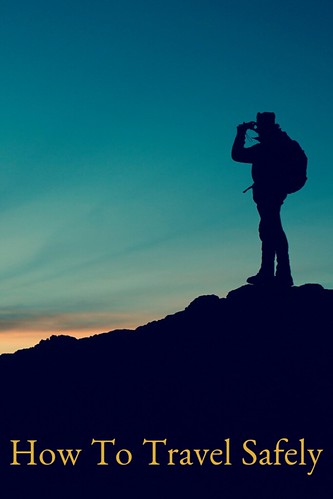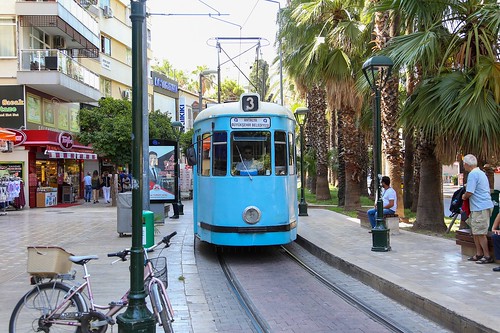When traveling, we are often in somewhat vulnerable positions; it is a foreign country we are visiting after all, which means a new culture, unfamiliar customs, and possibly different standards of appropriate behavior. Even though international traveling is exciting, adventurous, and rewarding, it can sometimes be potentially dangerous if we don't prepare accordingly. There are definite concerns should be taken into consideration by any traveler who is embarking to an unfamiliar area.

Here are some strategies that can help you stay safe during your trip:
1. Do Your Research
Before you embark on a journey, you need to do your homework. This includes extensive research regarding the country you are traveling to, its climate, culture, customs, possible threats, and things you are not allowed to do is a must. A great and easy way to research a new place is by reading some articles (including on this site!); good thing there are tools, like PapersOwl, that can provide content on any topic you want, even about your destination.
Doing your research means you are being smart beforehand so you can fully enjoy your trip. Some of the safety precautions also include checking travel warnings and whether the local government has issued any concerns, as well as checking the overall safety of the area.
2. Check Your Health And Get Appropriate Vaccines
A physical exam before the travel is of great importance if you want to stay healthy during and after the trip. This also means that you need to check the health/medical concerns of the country you are visiting. Furthermore, if you are traveling to a destination where you can get in contact with new to you or rampand disease, it is critical that you get vaccinated. This will not only help you stay safe and healthy during your trip, but it will also prevent you from bringing the disease back home to your family, friends, and broader community.
3. Make E-Copies Of Your Documents
Since you will be carrying important and necessary documents during your trip, making electronic copies is a smart decision. Create an electronic backup of all the documents you have, including visa, passport, plane tickets, travel and medical insurance cards, immunization record and itinerary.
After you make your digital copies, save all of the files to your Google drive, or email them to yourself to keep safe in the inbox in case you lose your documents or they get stolen.
4. Smart Packing
It can be tempting to carry all of the suitcases you own on your trip, but it is not smart to do so. Having a lot of luggage increases the chance of something getting lost at the airport or the hotel. Instead, pick only the essential clothing and other items for a more comfortable and safe trip. You will be surprised to see how much you can pack in only one suitcase - or a carryon.
5. The 'Bling' Should Stay At Home
By carrying expensive and precious jewelry, watches, and other bling, you are basically inviting theft. Stay strong and resist the urge to carry expensive jewelry, because if you make yourself look like a target, you will probably become one.
6. Forget About The Back Pockets
On the same note, leaving things like your wallet or phone in your back pocket is just an announcement to the thieves that you are easy pickings. Pickpocketing is one of the most common concerns of tourists around the world...for a reason. Be smart and at least use the front pockets. You should also consider getting a money belt/pouch, where you can keep all the essential things, like credit cards, wallet, keys, money, and wear it under your shirt or jacket.
7. Avoid Talking To Strangers
Some people think that the best way to get to know a new city or a new country is by talking to the locals, and they are not wrong. Meeting new people is one of the best things you can experience on a trip to a new place. However, it is essential not to get too excited or too involved. If you do decide to go and meet strangers, make sure to keep a distance and not reveal personal information. Also, don't believe everything you hear, since you can't know a person's true intentions. Moreover, don't accept food, drinks, or invitations to go somewhere unfamiliar, especially if you travel on your own.

What To Do If You Get In Trouble?
• If your wallet, or any other personal possession, is stolen, make sure to contact the local police and report the crime with a statement.
• If your credit card is missing and you assume it was taken, report the case to your bank as soon as possible; this way, no one can transfer the money from your card. Also, make sure to report the incident to your travel insurance company.
• If insects or an animal attack you, use a first aid kit, purchase medication at a pharmacy, or if a situation is more serious, see a local doctor
• If you lose your luggage, report the incident to the airline's counter. Bear in mind that the longer you wait for your luggage, the higher the compensation your airline has to provide. If your luggage is lost elsewhere, then contact the local police.
